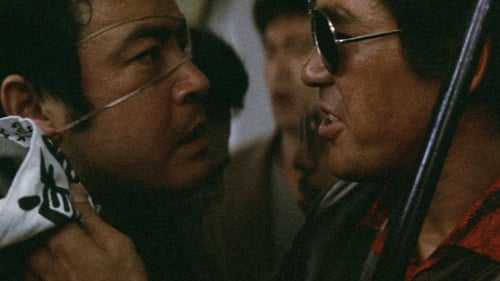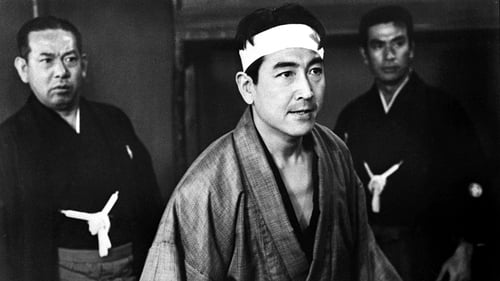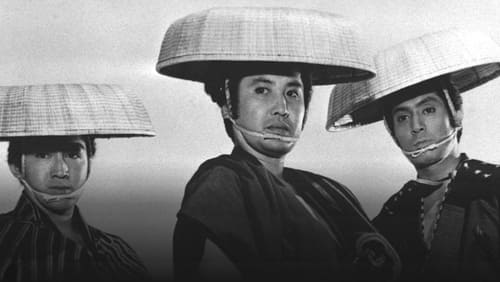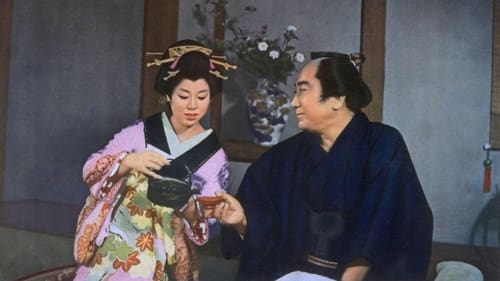
Repeatedly beat to a pulp by gamblers, cops, and gangsters, lone wolf Shoji Yamanaka finally finds a home as a Muraoka family hitman and falls in love with boss Muraoka's niece. Meanwhile, the ambitions of mad dog Katsutoshi Otomo draws our series' hero, Shozo Hirono, and the other yakuza into a new round of bloodshed.

Ninkyo with Hideki Takahashi.

When Honjo is selected as Kansai district's chairman, Iwasa of the rival gang asks Itsuki to do everything possible to have Honjo step down, which puts Itsuki between a rock and a hard place.

Saburo Kitajima, one of Japan’s most famous Enka singers, returns in the fifth of the Kyodai Jingi series. During the early 20th century, Ryuji from Asakusa, a wandering yakuza, joins the Narumi Family in Yokohama. However, when he confronts Shiotaro, the head of the rival family, Ryuji takes a liking to him. He ends up leaving his current family, and becomes close to Shiotaro like brothers swearing to become a full-fledged yakuza.

Ninkyo with Kôji Tsuruta. An elderly yakuza brother tries to clear an underling’s name.

The second part of the Gamblers series.

Part two.

Three closely associated gamblers have adventures in Yokohama, Hokkaido, and Macao. Gambling trio endure hardships to rescue Naojiro’s family.

Part one.

1966 film directed by Kudo.

A tale of three Yakuza gamblers who traveled Japan during the samurai era living by their wits and sword skills. Told in 3 separate vignettes, each part tells the story of a different drifter’s life. Part 1: A man is on the run after killing two Hasshu Officials to avenge his Boss. He must make a life or death decision as he is asked to protect a gang from attack. Part 2: A pair of gamblers chased out of a crooked game must fight not only their pursuers, but the ghosts of their pasts as well. Part 3: A wanderer who wants to live according to the Yakuza Code, but is not sure that he can do so when asked to save a town from an evil official.


Yamajin
A story of an orphan boy who wanted the love of parents so badly, another orphan sincerely pitied him to the point he gives his secret birthright as an illegitimate son to a Shogun as a "gift of hope" to the sad boy. As the orphan boy grew up, his loving heart became bitter and he saw the opportunity to take advantage of this birthright with the help of a man who wanted to use this orphan's desire to be loved, for seizing power in the shogunate by using the imposter. Many obstacles to hurdle along the way of deception, however, will they succeed or will he be exposed?

A successful textile industrialist from the provinces, who is beloved by his employees for his kindness, cannot find a wife because of a disfiguring birthmark on his face. Even the courtesans in Yoshiwara refuse to entertain him, until an indentured peasant prostitute, Tamarazu, takes the unsavoury assignment and treats him with brash tenderness.

Early film by Eiichi Kudô.

This is the second installment of the trilogy based on Japan’s greatest novel “The Great Bodhisattva Pass”, following the life and times of bloodthirsty samurai, Tsukue Ryunosuke. Blinded in an explosion and further injured from a fall, the master swordsman is taken in by Otoyo, a woman who falls in love with him. Under Otoyo’s dedicated care, Ryunosuke’s physical and emotional wounds seem to heal. However, deep inside, the demons that drive him to kill yearn to resurface. Meanwhile he is being pursued by Utsugi Hyoma, a young samurai seeking to avenge his brother’s death at Tsukue’s hands. Hyoma is being aided along the way by the clever thief Shichibei.

Yozo Murata
Ito Daisuke's wartime retelling of the Miyamoto Musashi story.







